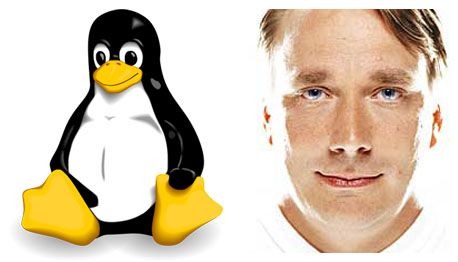In the realm of technology, there are moments that redefine the landscape, altering the course of history. One such moment occurred in the early 1990s when a young Finnish student named Linus Torvalds set out on a journey that would change the world of computing forever. This is the story of the birth of Linux, a revolution in the making.
Genesis of an Idea
The story begins in Helsinki, Finland, where Linus Torvalds was studying computer science at the University of Helsinki in 1991. Frustrated by the limitations of the operating systems available at the time, Torvalds embarked on a quest to create his own. Drawing inspiration from Unix, an operating system developed at Bell Labs in the 1960s, Torvalds began work on what would become known as the Linux kernel.
The Linux Kernel: From Concept to Reality
Armed with determination and a keen intellect, Torvalds set to work writing code for the Linux kernel, the core component of an operating system responsible for managing hardware resources and providing essential services to software applications. Using the C programming language and the GNU toolchain provided by the Free Software Foundation, Torvalds steadily built upon his initial design, incorporating features and improvements contributed by fellow developers on the fledgling internet.
Collaboration and Community: The Spirit of Open Source
One of the defining characteristics of Linux from its inception was its open and collaborative development model. Unlike proprietary software, which is developed behind closed doors by a select group of individuals, Linux was created in the full glare of the public eye, with its source code freely available for anyone to view, modify, and distribute. This ethos of openness and transparency attracted a vibrant community of developers, enthusiasts, and hobbyists who rallied behind the Linux project, contributing code, reporting bugs, and sharing knowledge.
The Release of Linux 0.01: A Milestone Moment
On September 17, 1991, Linus Torvalds made a momentous announcement on the Usenet newsgroup comp.os.minix, revealing the release of Linux version 0.01. In his message, Torvalds described Linux as a “hobby project” and invited others to join him in its development. Little did he know that this humble release would mark the beginning of a technological revolution that would reverberate across the globe.
The First Email from Linus Torvalds About Linux Kernel
Subject: What would you like to see most in minix?
From: Linus Torvalds [email protected]
Date: Wed, 25 Aug 1991 20:57:08 +0200
Hello everybody out there using minix –
I’m doing a (free) operating system (just a hobby, won’t be big and professional like gnu) for 386(486) AT clones. This has been brewing since april, and is starting to get ready. I’d like any feedback on things people like/dislike in minix, as my OS resembles it somewhat (same physical layout of the file-system (due to practical reasons) among other things).
I’ve currently ported bash(1.08) and gcc(1.40), and things seem to work. This implies that I’ll get something practical within a few months, and I’d like to know what features most people would want. Any suggestions are welcome, but I won’t promise I’ll implement them 🙂
Linus ([email protected])
Growth and Expansion: Linux Takes Flight
In the years that followed, Linux gained momentum at an astonishing pace, propelled by its performance, stability, and the passionate dedication of its community. Major corporations, including IBM, Intel, and Red Hat, threw their weight behind the Linux project, contributing resources, expertise, and financial support. Linux found its way into a dizzying array of devices and environments, from servers and supercomputers to smartphones and embedded systems, solidifying its position as the operating system of choice for the modern era.
Legacy and Impact: The Enduring Influence of Linux
As we reflect on the birth of Linux and its subsequent evolution, it is clear that its impact extends far beyond the realm of technology. Linux embodies the spirit of collaboration, innovation, and empowerment, serving as a shining example of what can be achieved when people come together to pursue a common goal. Its success has inspired countless individuals and projects, fueling a renaissance of open source software and paving the way for a more inclusive, democratic, and equitable digital future.
In conclusion, the birth of Linux stands as a testament to the power of one person’s vision and the collective strength of a community united by a shared passion for technology. From its humble beginnings in a university dorm room to its ubiquity in the modern computing landscape, Linux has defied expectations, shattered barriers, and changed the world in ways that were once thought impossible. As we look to the future, we can only imagine what wonders lie ahead, guided by the guiding principles of openness, collaboration, and innovation that define the Linux ethos.

